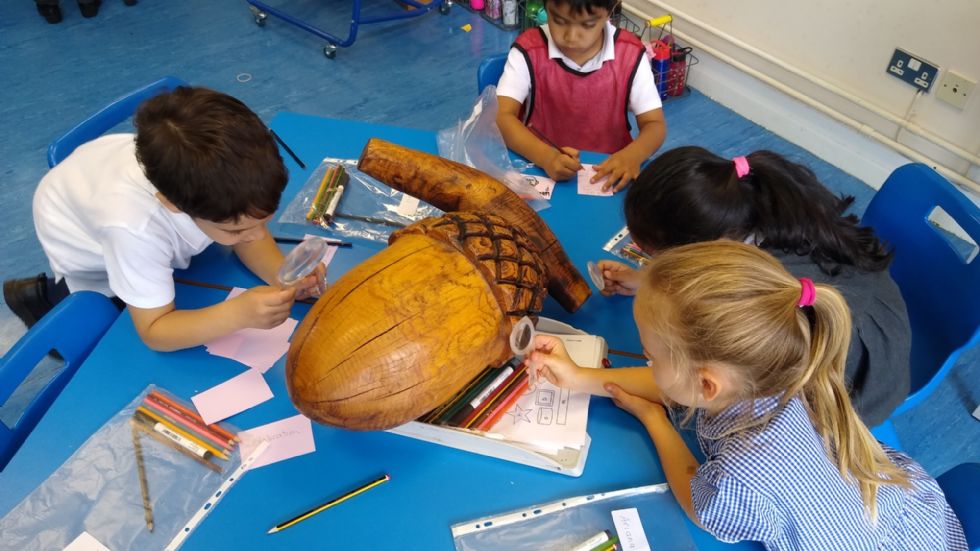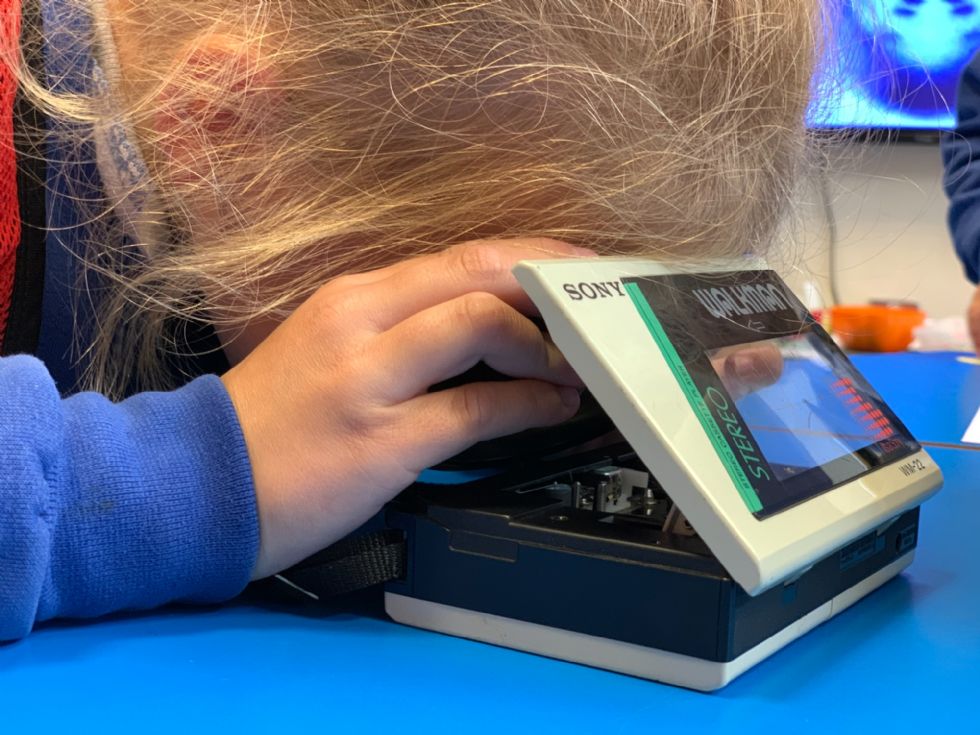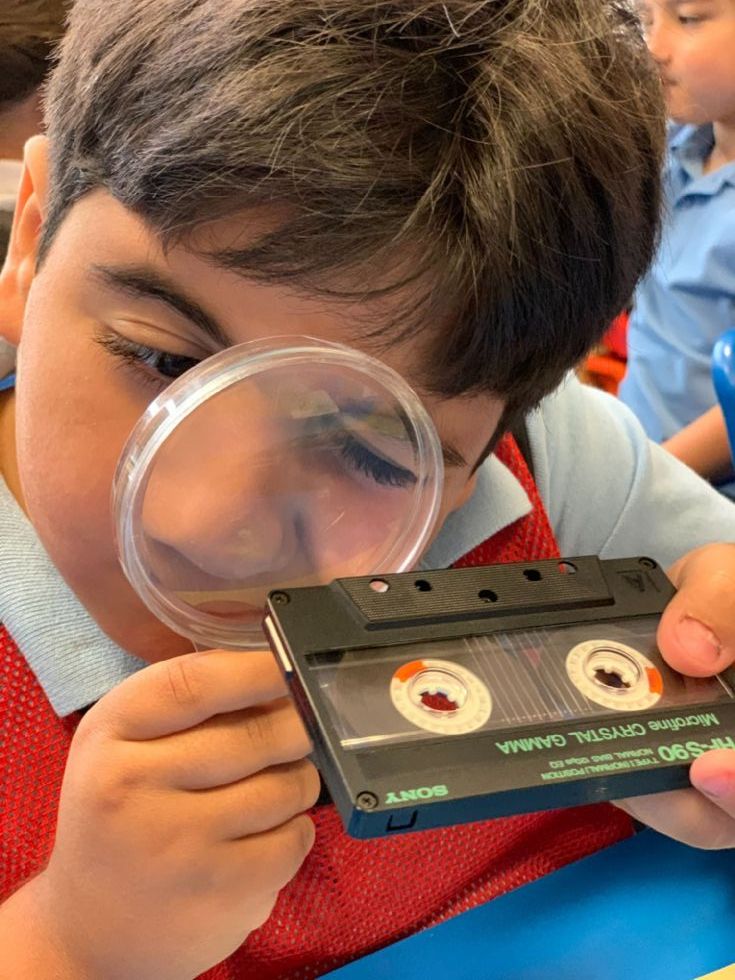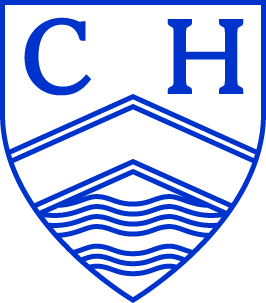History




History Vision: Learn together what it is to be a historian, grow together in our knowledge of significant people and events and our understanding of chronology.
1 Curriculum Intent
At Coombe Hill Infant School, we aim to deliver a high-quality history education that inspires pupils to:
- develop a sense of curiosity about the past and appreciate human achievements;
- develop a sense of chronology, within which they can organise their understanding of the past;
- understand the nature of evidence by emphasising history as a process of enquiry, developing the questioning skills necessary to interpret primary and secondary source materials;
- grow the cultural capital of all pupils, by fostering an understanding of our cultural roots and well as those of other countries represented in our school community;
- to develop an understanding of the history of our local area and how it has changed.
Our teaching staff agree that we are aiming for the same endpoint - children are curious to know more about the past, are able to ask questions and think critically in order to develop perspective and judgement. We are close to central London and therefore we maximise the opportunities to learn about London and make use of galleries and museums to find out about our locality. History is taught both as a discrete subject and through topics, with children being encouraged to make links between their learning in all of the other curriculum areas.
2 Implementation
All staff have a clear and ambitious vision for providing high quality teaching of history. Our curriculum is designed to:
- ensure a rigorous, sequential approach to teaching history in order for the children to begin to acquire the skills of an historian;
- be multi-sensory in order to immerse children in their learning - drama workshops, artefacts, art, DT, educational visits to museums and galleries;
- to develop knowledge and understanding of how people lived in other times and how those times were different from today;
- to learn how people’s lives have shaped this nation and how Britain has influenced and been influenced by the wider world;
- expect that the teacher’s own speaking, listening, writing and reading of English, supports children in developing their language and vocabulary;
- to improve memory retention and retrieval through immersion and regular re-visiting and quizzing of key facts;
- to develop the ability to communicate historical knowledge in a variety of forms, using a wide vocabulary of words and phrases relating to the passing of time;
- to develop in children the skills of:
- Enquiry
- Investigation
- Analysis
- Evaluation
- Presentation
- Asking and answering questions
3 Key Teaching and Learning Principles
3.1 History teaching focuses on enabling children to think as historians. We place an emphasis on examining historical artefacts and primary sources, and give children the opportunity to visit sites of historical significance. We encourage visitors to come into the school and talk how about their experiences contrast to events in the past which we have studied. We recognise and value the importance of stories in history teaching, and we regard this as an important way of stimulating interest in the past. We focus on helping children understand that historical events can be interpreted in different ways, and that they should always ask searching questions (e.g. ‘How do we know?’) about information they are given.
3.2 We achieve this through a variety of teaching approaches, including:
- setting tasks which are open-ended and can have a variety of responses;
- setting tasks and providing opportunities which ensure a progression of skills;
- immersing children in topics using role play, drama, storytelling;
- encouraging individual and group research at school and home through projects;
- being curious and investigating artefacts and sources of evidence;
- using educational visits to museums and sites of historic interest;
- welcoming drama groups and guest speakers;
- using themes to link significant events and people, e.g. heroines and explorers;
- short 5-10 minute sessions which allow children to learn about a range of people/events and to ask and answer key historical questions of significance and impact;
- work that is cross-curricular, practical and rooted in the child’s own experience.
3.3 We provide opportunities for pupils to develop the key skills of:
- Communication, through reading and responding to a range of sources of information, when planning and carrying out historical enquiries, through taking part in discussions, and presenting findings in a variety of ways.
- Co-operation, through planning and carrying out historical enquiries that are classroom based or take place on a visit to a museum, gallery or site.
- Improving their own learning and performance, through reviewing their work at regular intervals, setting targets for improvement and assessing their achievement.
- Problem-solving, through finding out about the past by investigating a specific question, deciding what information they need to know, identifying relevant sources of information and discussing their conclusions.
- Thinking skills, through work on processing and evaluating information, describing and explaining events and actions, and carrying out investigations of past events.
4 History curriculum planning
4.1 We use the National Curriculum and Development Matters documentation as the basis for our planning in history, but we have adapted this to our local context. We ensure that there are opportunities for children of all abilities to develop their skills and knowledge, using the skills progression, so that the children are increasingly challenged as they move through the school.
4.2 Our long-term year group plans map the history content studied in each term during each year; this is devised in conjunction with the history subject leader and year group leaders to ensure that the humanities complement each other and the rest of the curriculum throughout the year.
4.3 Specific learning objectives and expected outcomes for each lesson are set out in weekly planning for each year group.
5 Cross-curricular opportunities
Staff are encouraged to develop cross-curricular links with history and other subjects to provide a relevant and meaningful curriculum for pupils.
5.1 English
History contributes significantly to the teaching of English in our school by actively promoting the skills of reading, writing, speaking and listening. Children develop oracy through discussing historical questions, or presenting their findings to the rest of the class. They develop their writing ability by composing reports and letters, and through using writing frames.
5.2 Mathematics
The teaching of history contributes to children’s mathematical understanding in a variety of ways. Children learn to use numbers when developing a sense of chronology through activities such as creating timelines and through sequencing events in their own lives. Children also learn to interpret information presented in graphical or diagrammatic form.
5.3 Science
Links are made between historical events and people of historical significance, and with appropriate areas of the science curriculum. For example, linking Materials with The Great Fire of London, and Healthy Living with Florence Nightingale.
5.4 Computing
Wherever appropriate we use computing to enhance our teaching of history. The children use ICT in a variety of ways, such as viewing videos and pictures, researching information on the Internet and presenting information through Powerpoint.
Oracy in all subjects
Our curriculum design allows for as many speaking opportunities as possible as our teachers understand that speaking and listening are at the heart of language. Not only are they the foundations for reading and writing, they are also essential skills for thinking and communication. Our teachers are role models for good spoken English, using ambitious vocabulary and correct grammar. Children are encouraged to read aloud, discuss ideas with their peers and teachers, engage with and learn new vocabulary to extend their spoken and receptive vocabulary.
6 Assessment for/of learning
The knowledge, skills and understanding in the Skills Progression document identify the aspects of history in which pupils make progress:
- Chronology & Connections
- Historical Enquiry & Interpreting Evidence
- Historical Communication
6.1 Children demonstrate their ability in history in a variety of different ways. Teachers will assess children’s work by making informal judgments during lessons. On completion of a piece of work, the teacher assesses the work and uses this information to plan for future learning. Written or verbal feedback is given to the child to help guide his or her progress. Children are also encouraged to assess their own learning and make judgments about how they can move their learning forward.
6.2 At termly intervals, the teacher makes a summary judgement about the work produced. In order to assist these judgements, teaching staff are provided with a skill assessment sheet which, when completed, indicates the children who have met, have not met or have exceeded age-related expectations for that historical focus. We use this teacher assessment as a basis for assessing the progress of the child, and we pass this information on to the next teacher at the end of the year.
7 Resources
We seek to continually develop the range of resources for all history-teaching topics in the school. This includes:
- Listening to stories
- Looking at pictures/photographs/videos
- Handling artefacts
- Using written evidence and reference books
- Visits to relevant places of historical interest, sites and museums
- Role play and Drama, including outside Theatre Groups and workshops.
- Using ICT – internet, Espresso to research information.
Fun websites for Home Learning
CBBC: https://www.bbc.co.uk/cbbc/quizzes/type/historical#filter
BBC Bitesize: https://www.bbc.co.uk/bitesize/subjects/zkqmhyc
BBC Teach: https://www.bbc.co.uk/teach/class-clips-video/history-ks1--ks2-true-stories/z72wpg8
The School Run: https://www.theschoolrun.com/other-subjects/history
Quizzes galore: https://www.educationquizzes.com/ks1/history
8 Pupils with Special Needs
To ensure all children are fully included they will receive extra support for history work from Learning Support Assistants working within the classroom, and where necessary work will be adapted and differentiated to make sure all children can fully access the curriculum. Such pupils include pupils with language/communication difficulties who are given support with reading and writing during history lessons. Able pupils will be expected to develop their investigational skills to a higher level and to have a deeper knowledge and understanding of concepts covered in topic work. Able pupils will be encouraged to use a variety of resources to facilitate this learning.
9 Monitoring and review
9.1 Role of the subject leader
It is the responsibility of the history subject leader:
- to develop, implement and review an action plan for history;
- to monitor history throughout the school;
- to encourage staff to provide effective learning opportunities for all pupils;
- to develop valid activities appropriate for children at different stages of development, which enable pupils to progress in the subject.
9.2 Monitoring of the standards of children’s work and of the quality of teaching in history is the responsibility of the history subject leader. The work of the subject leader also involves supporting colleagues in their teaching, being informed about current developments in the subject, and providing a strategic lead and direction for the subject in the school.
